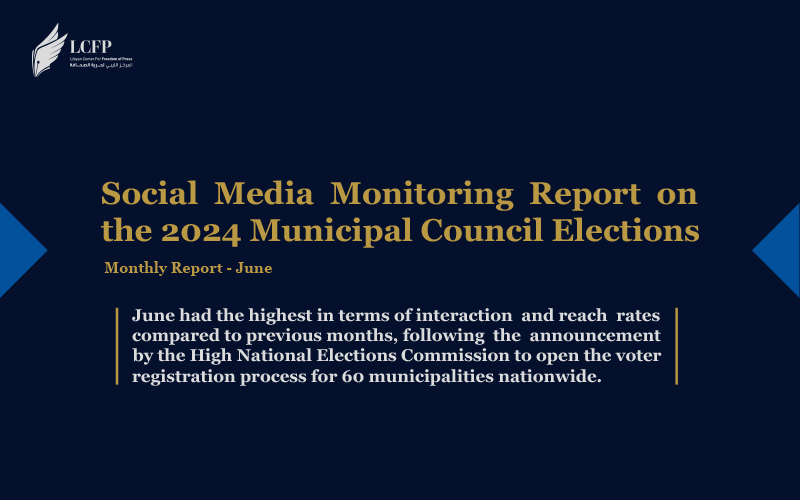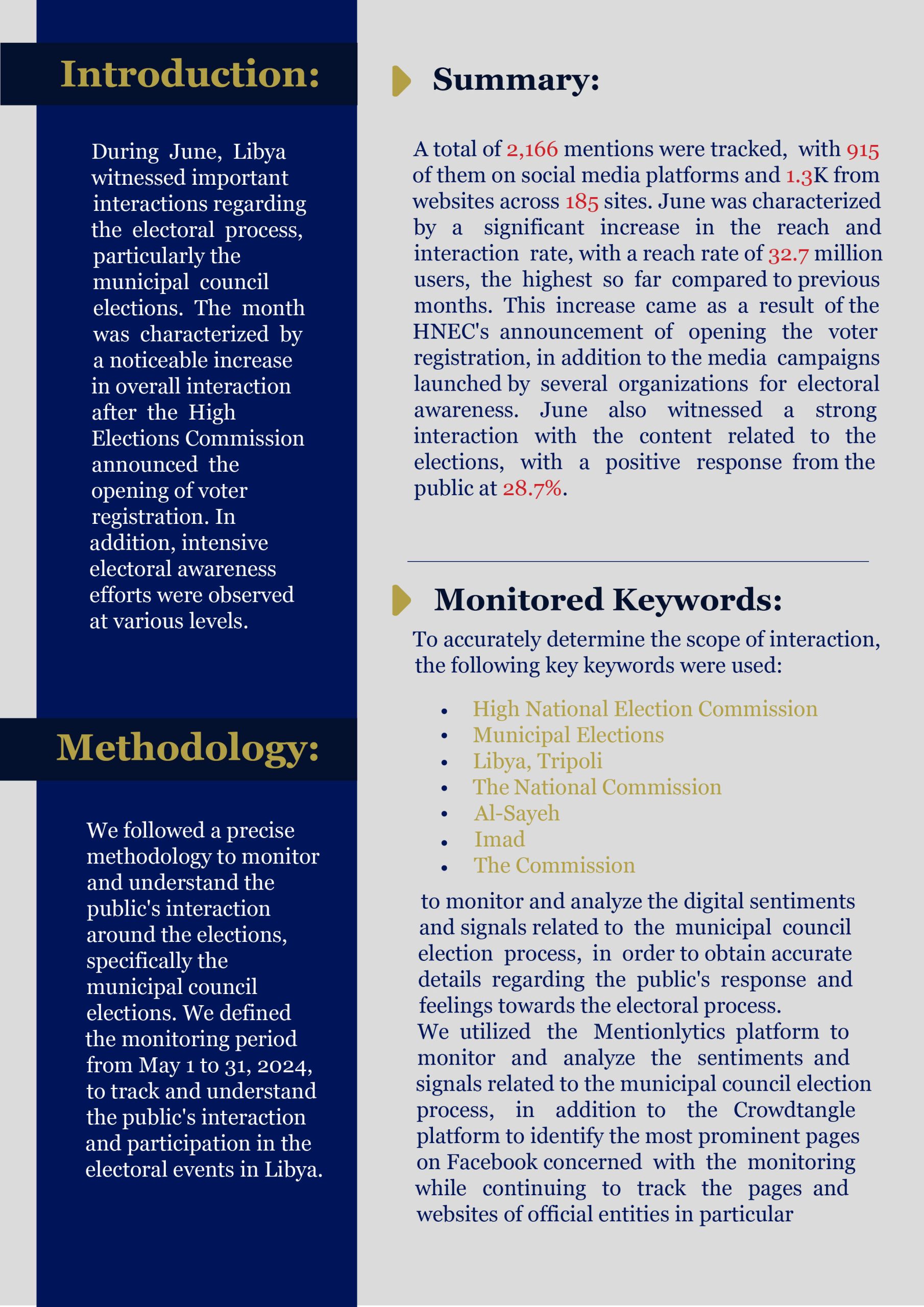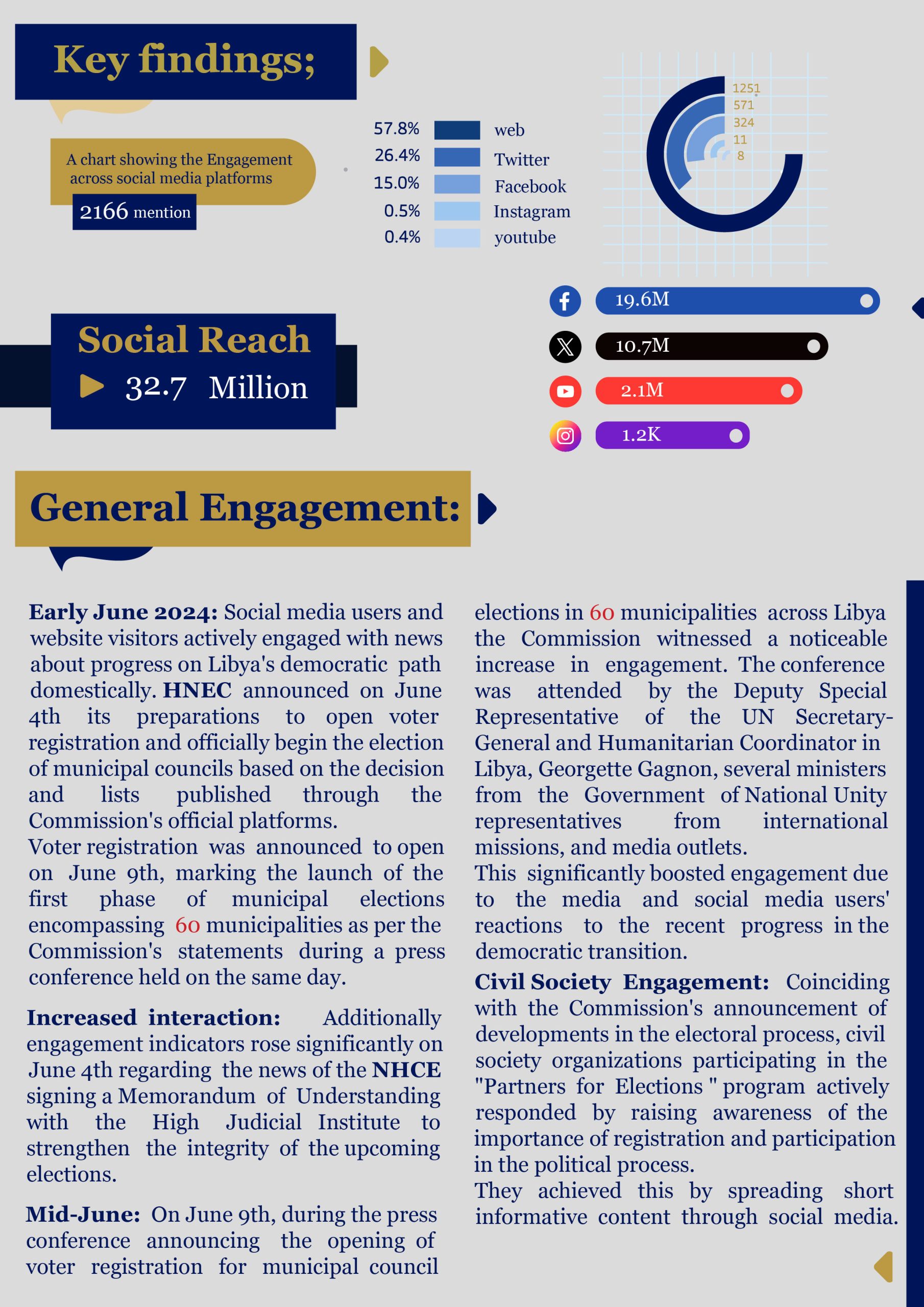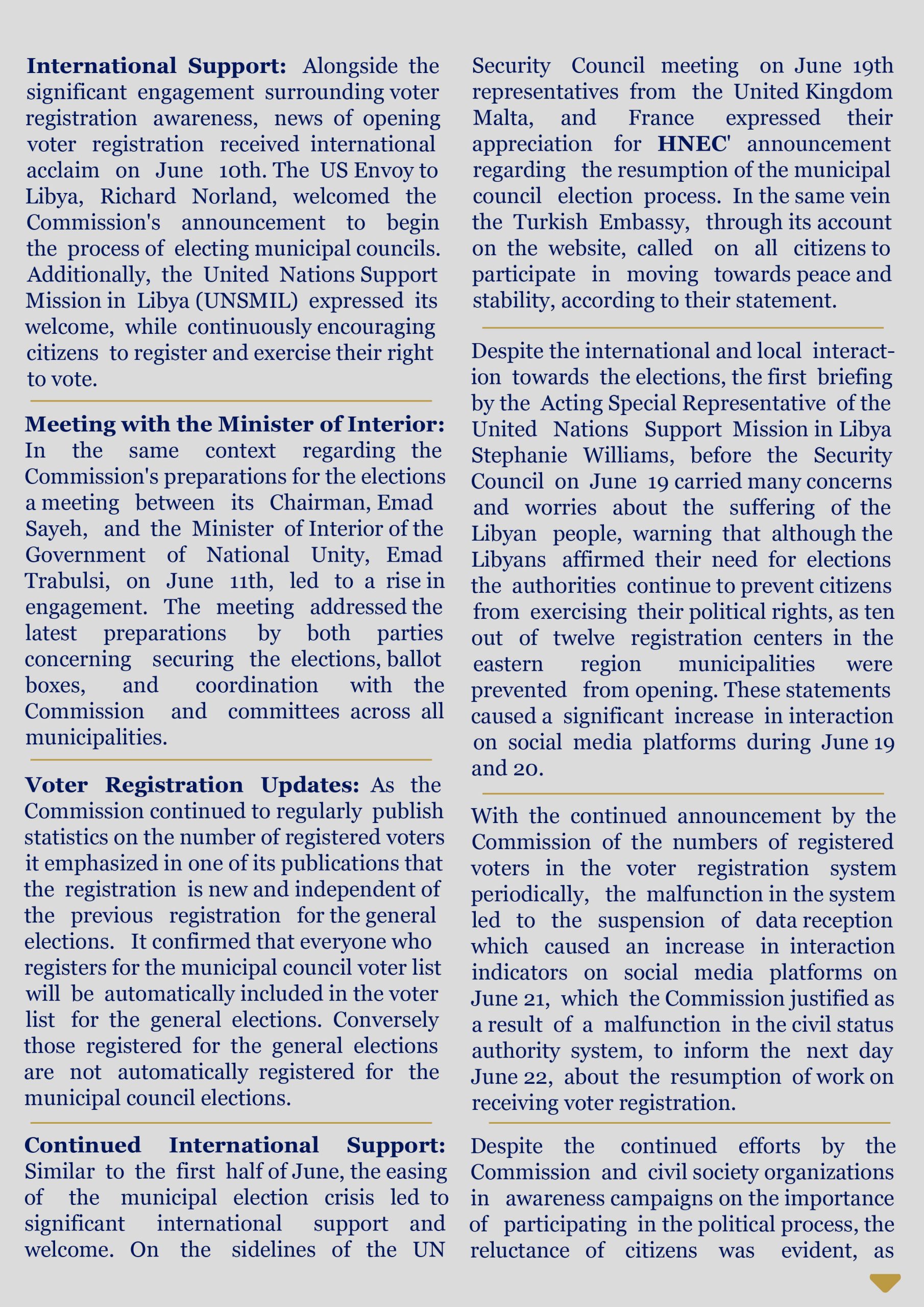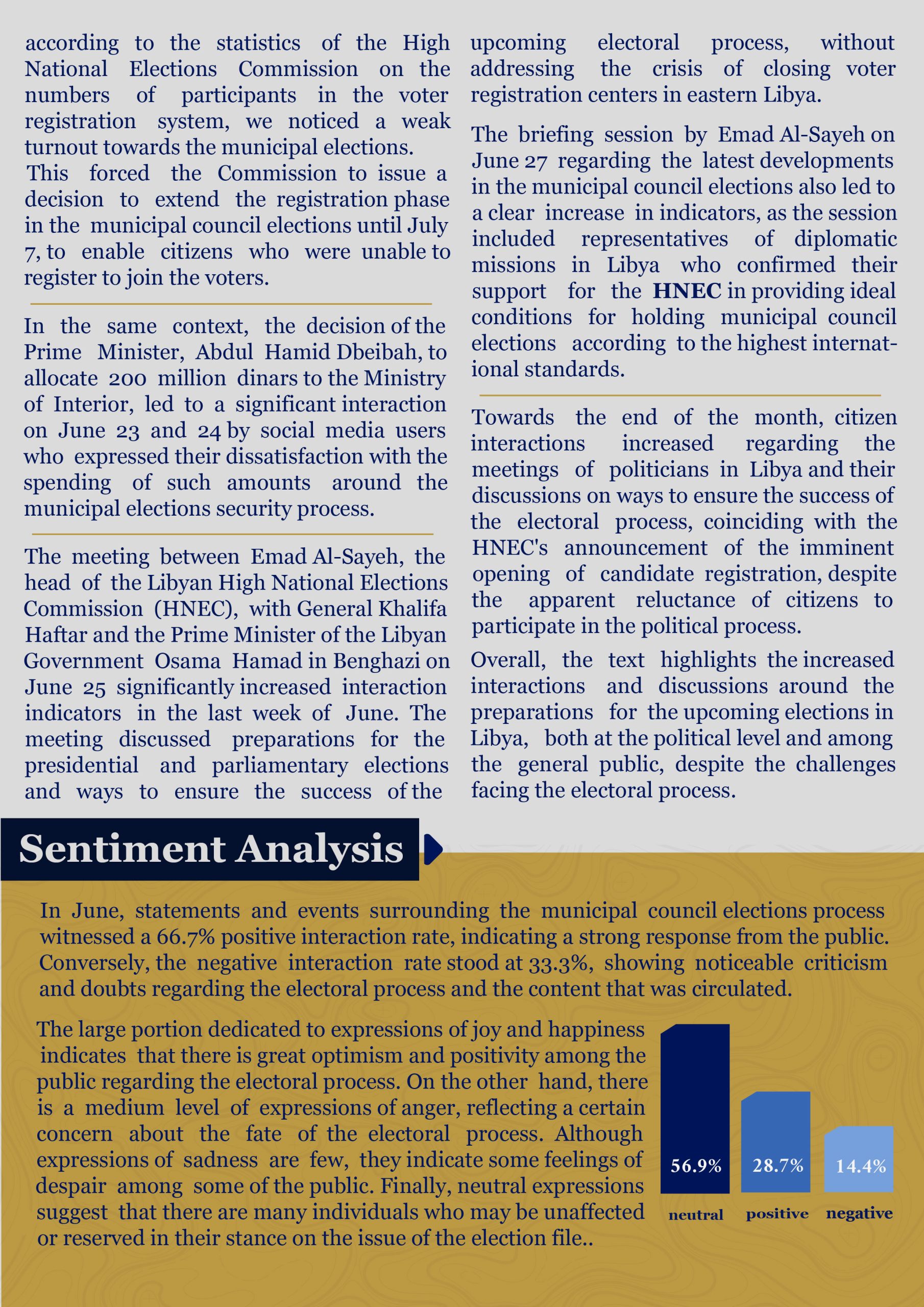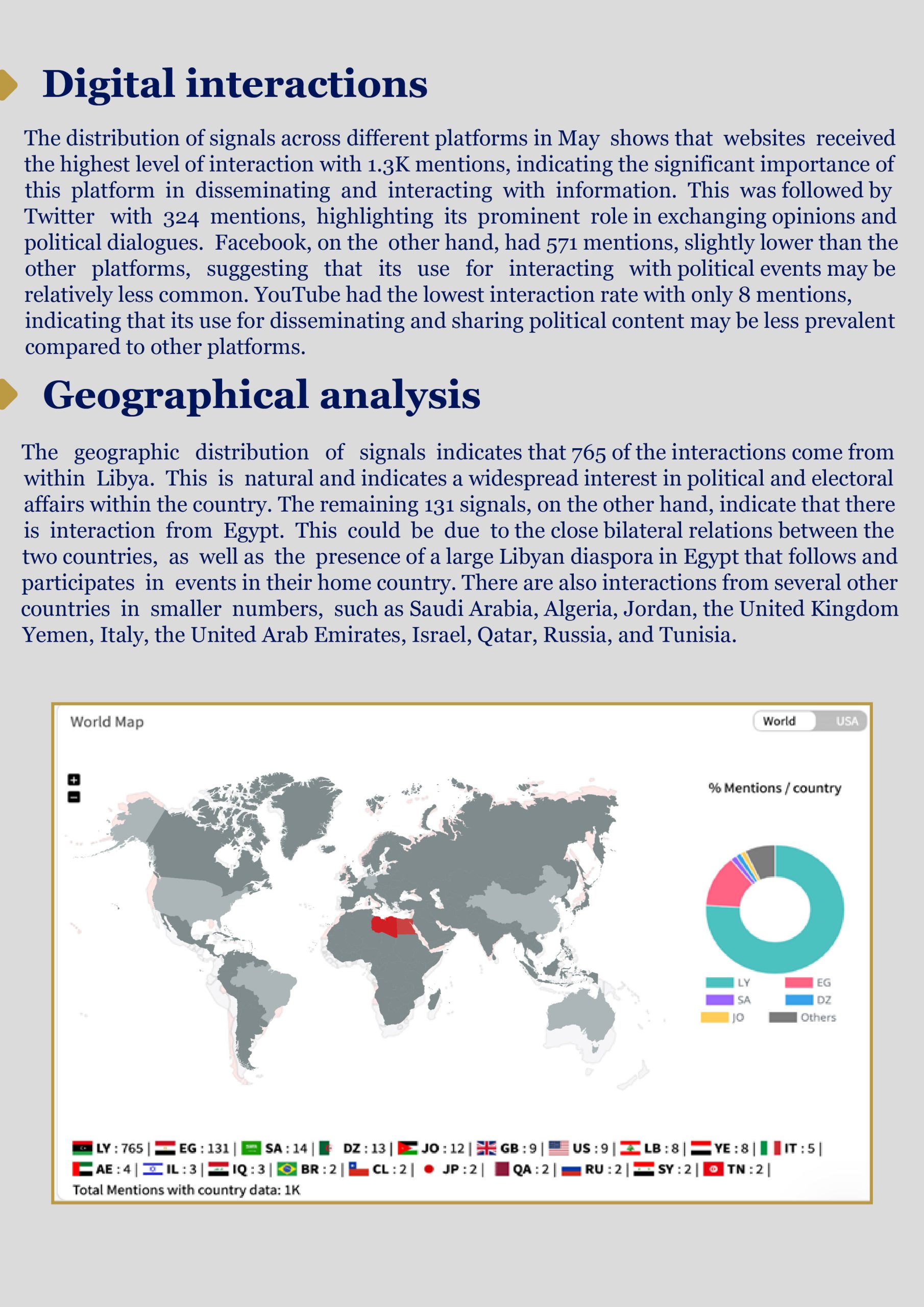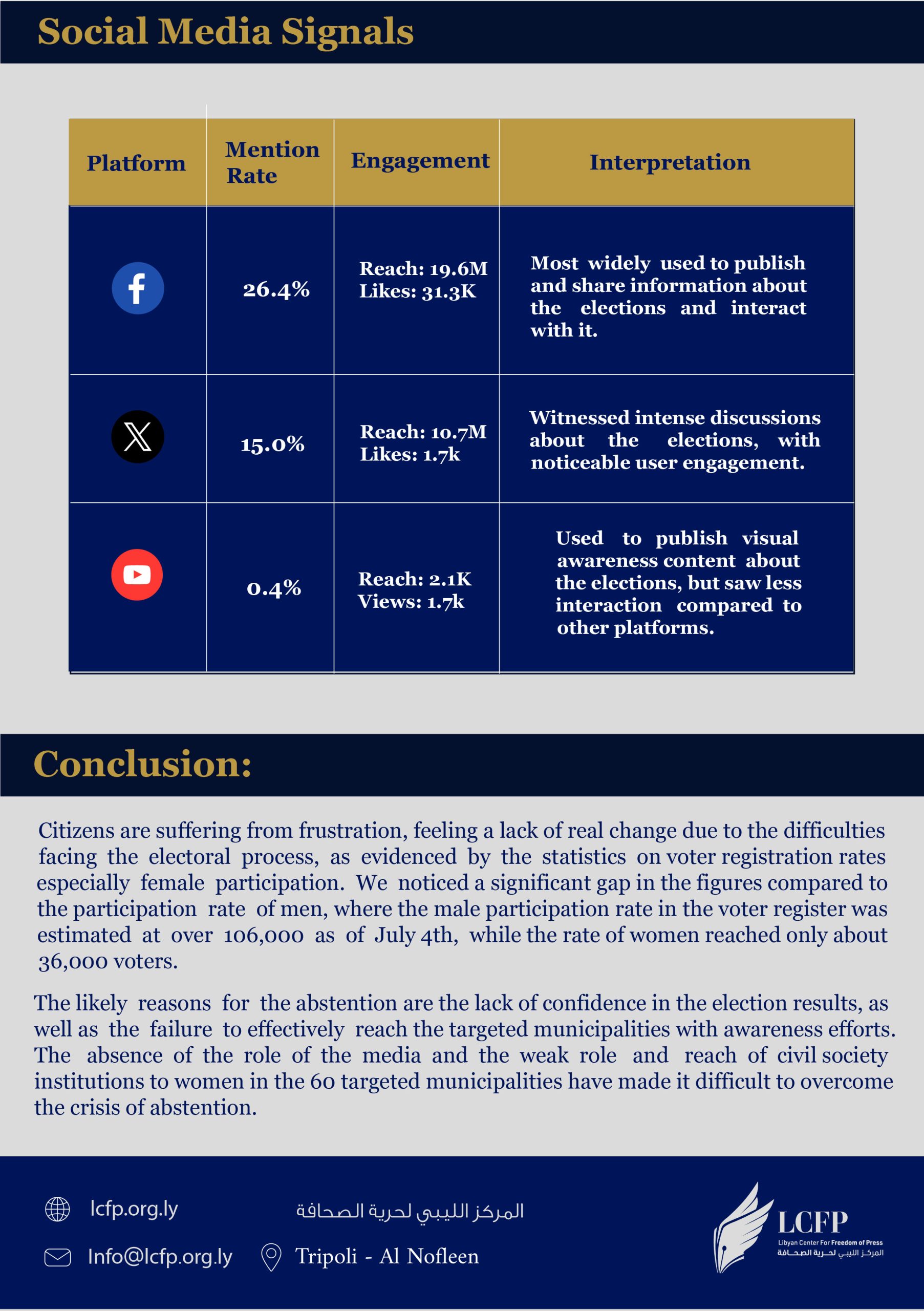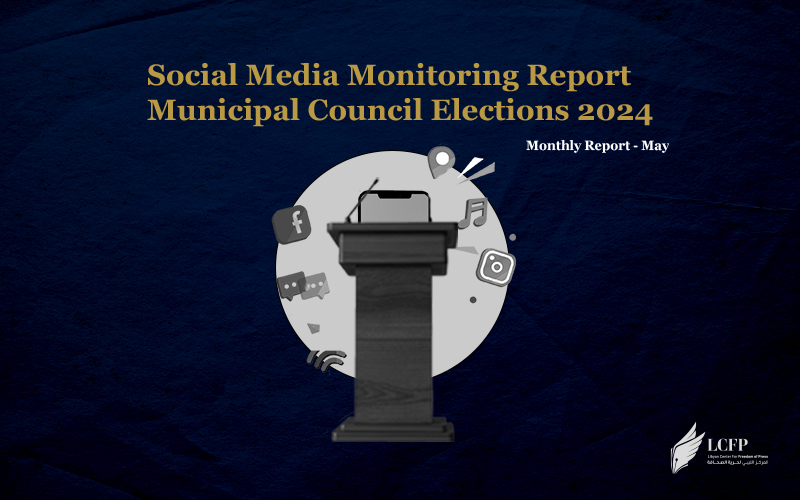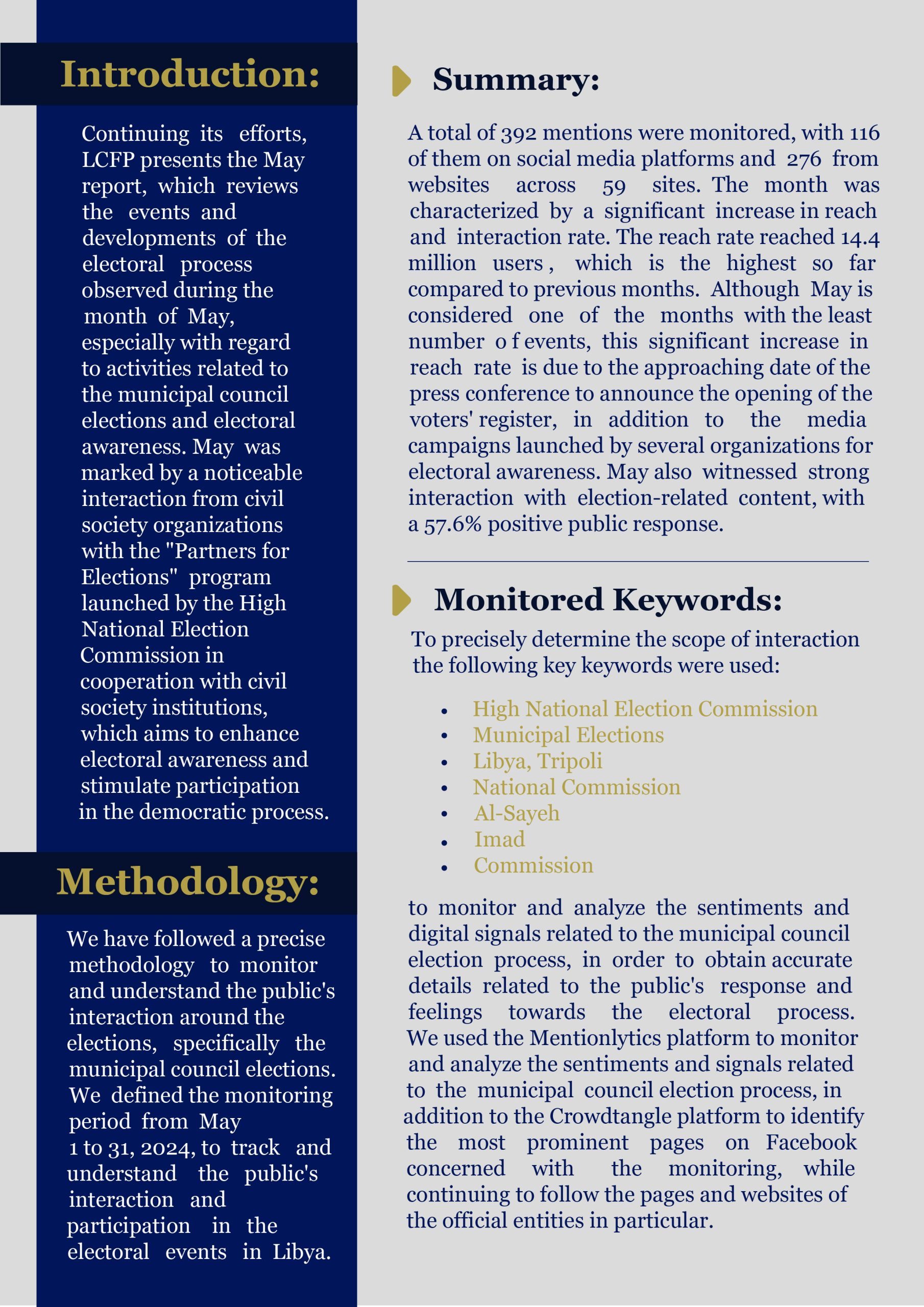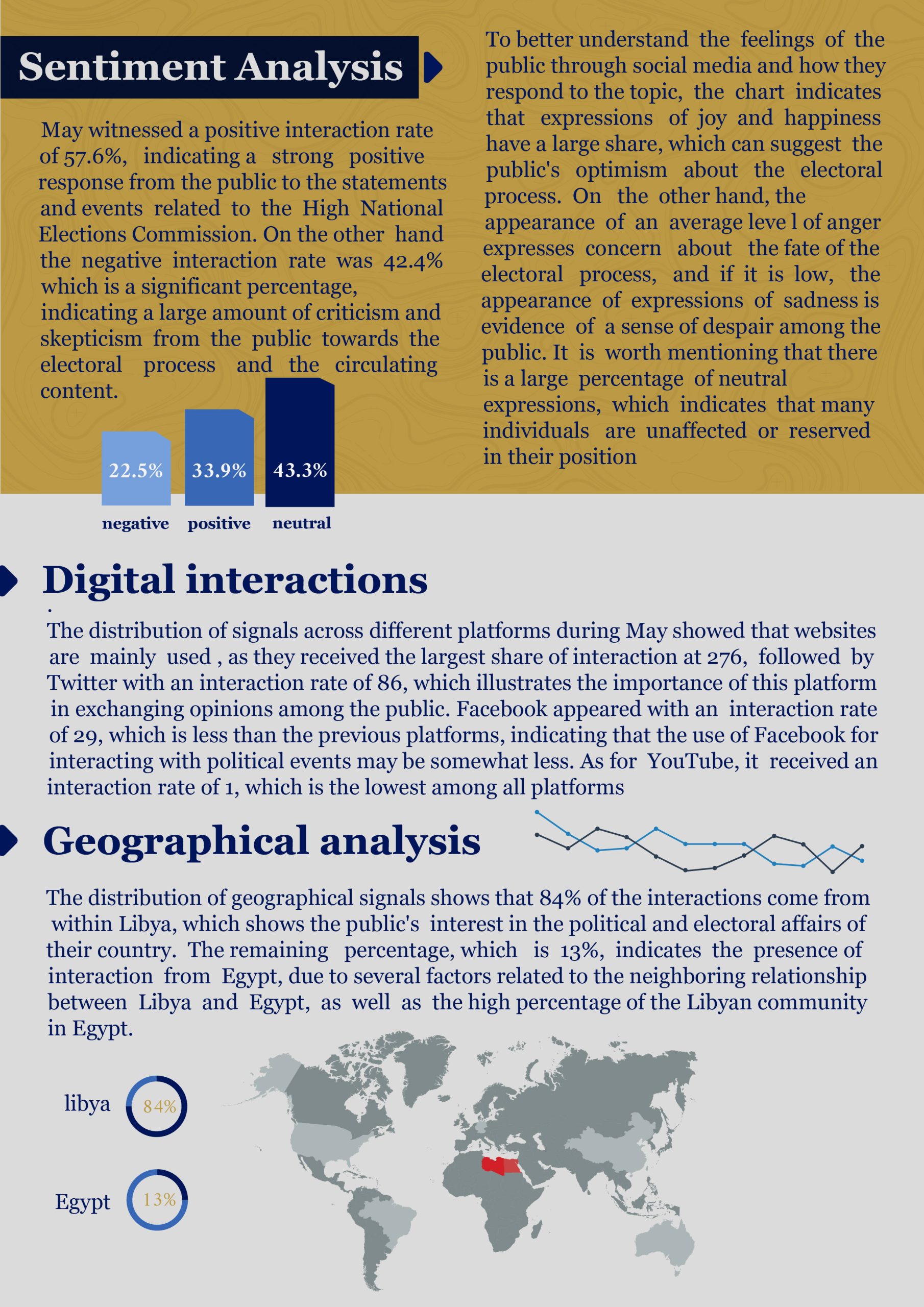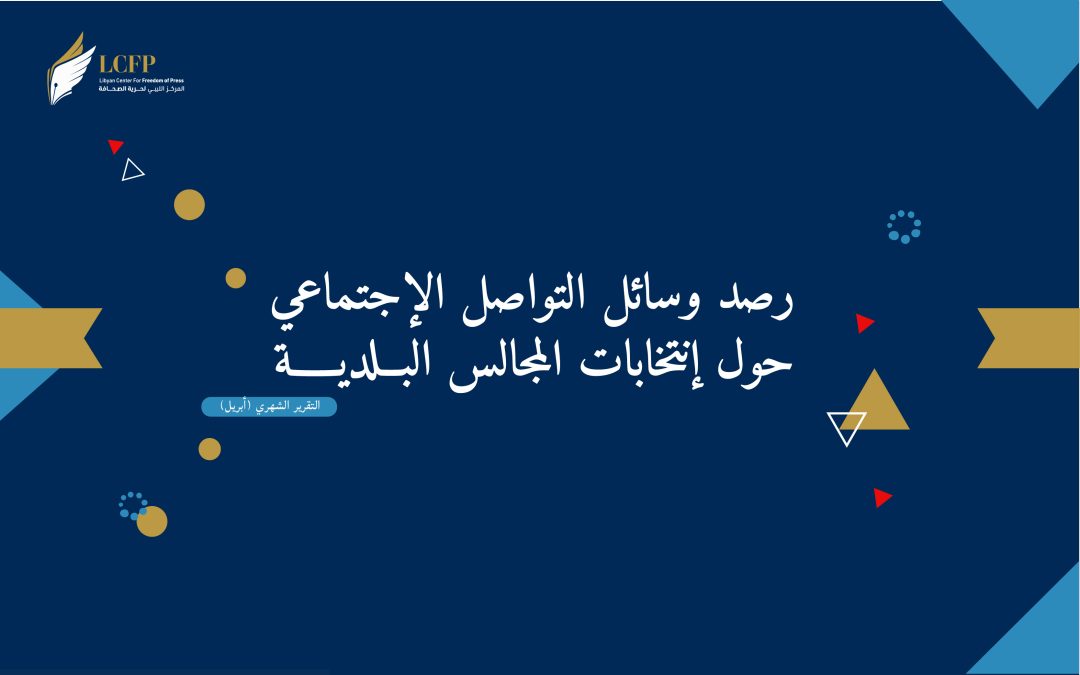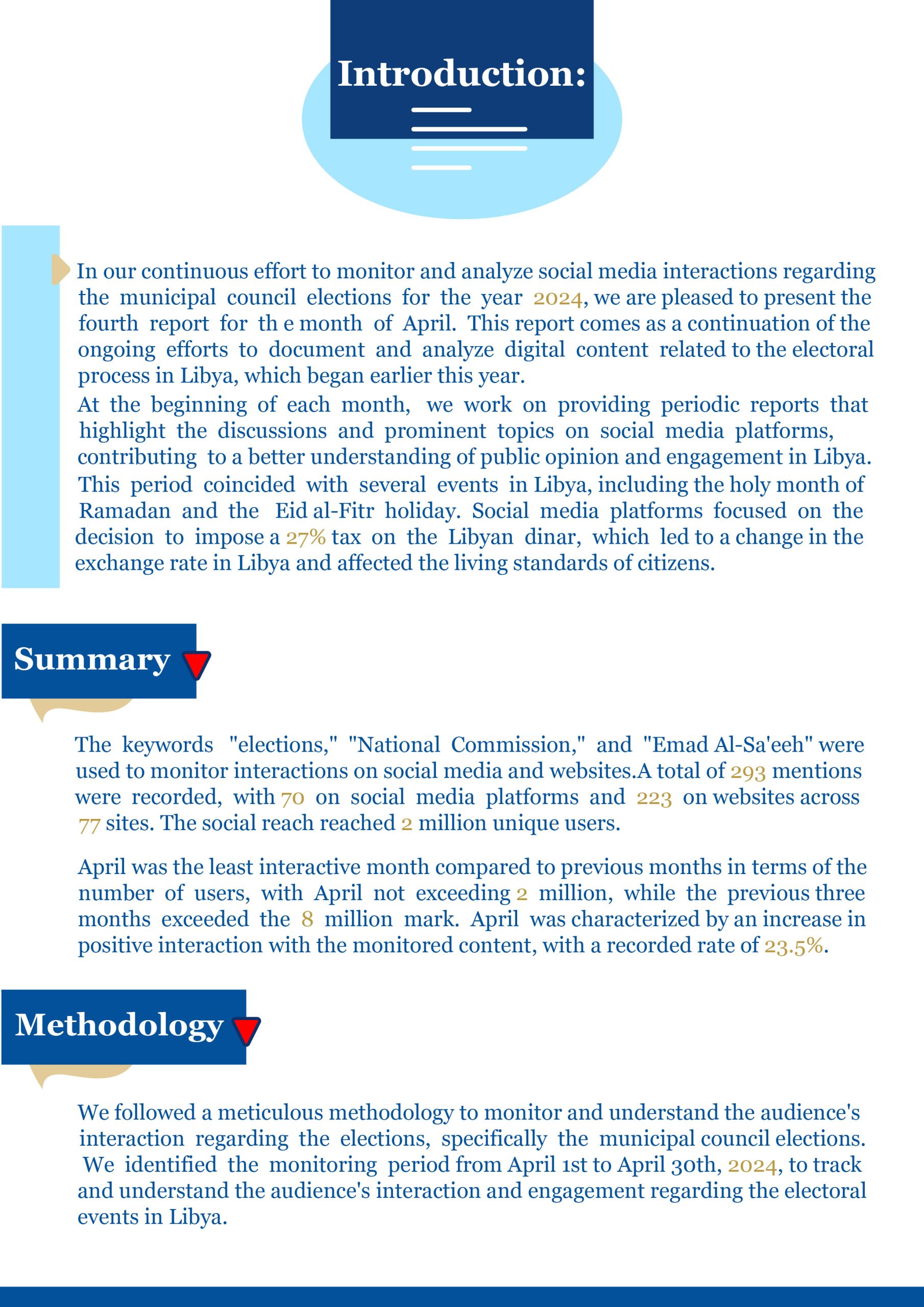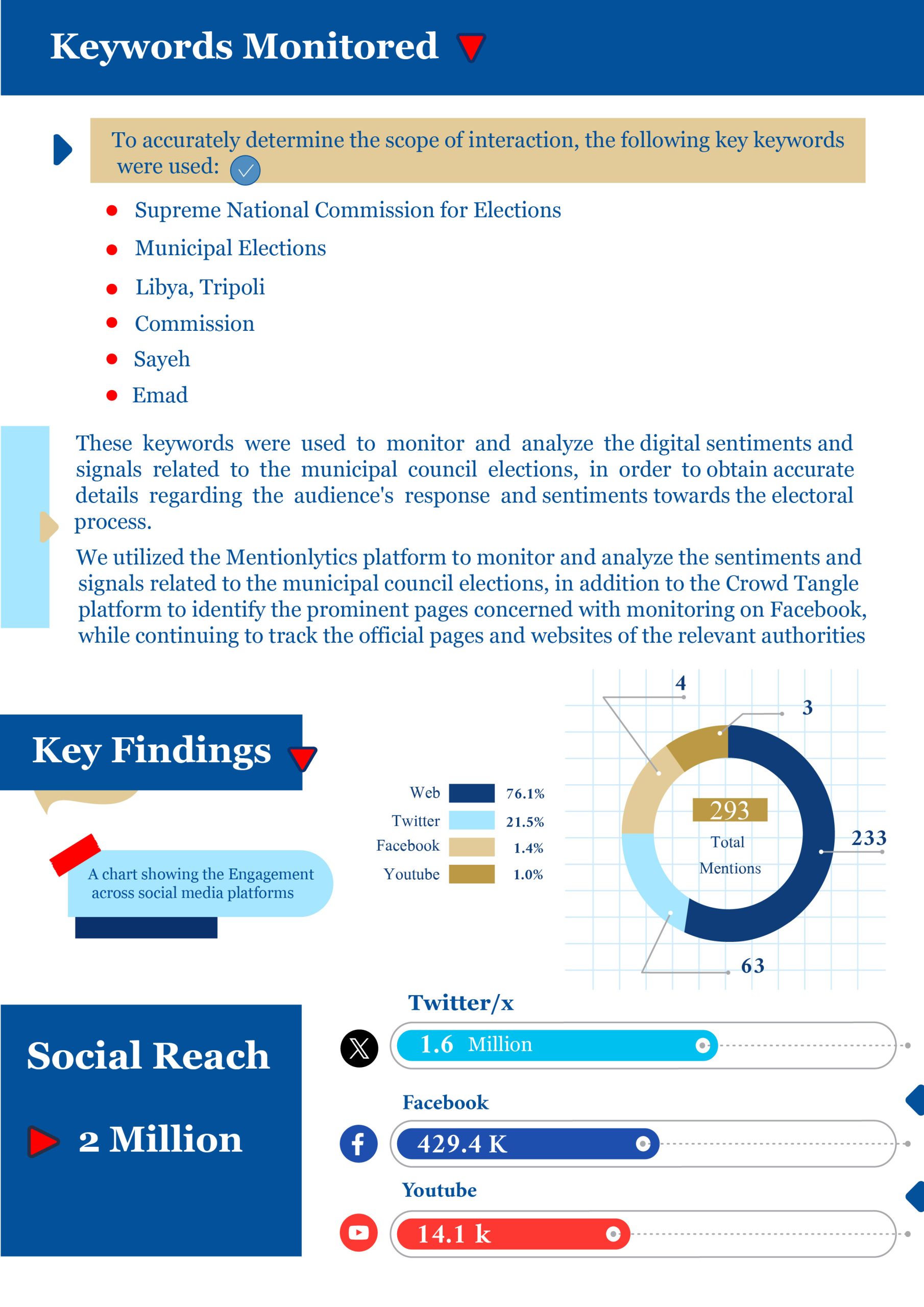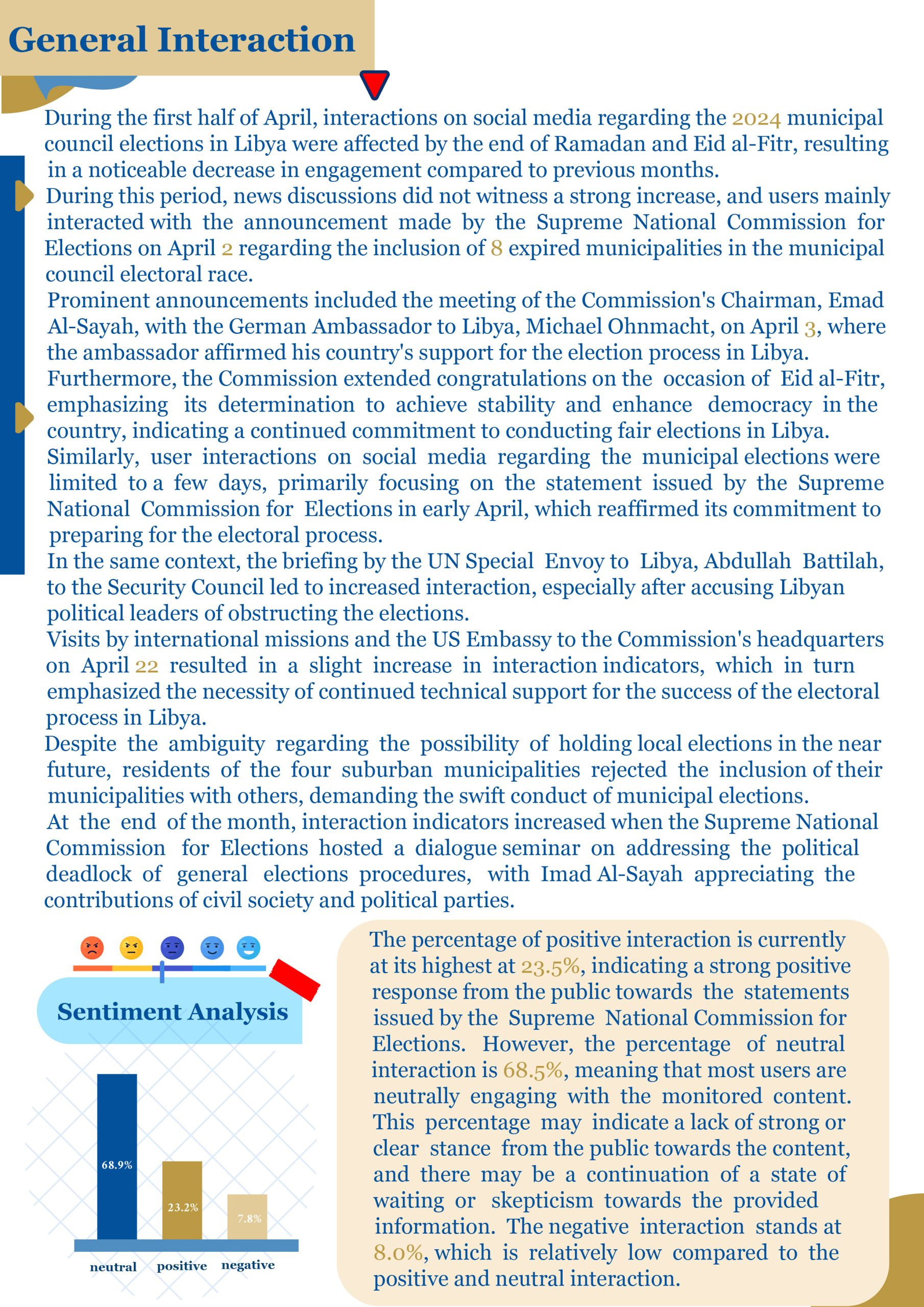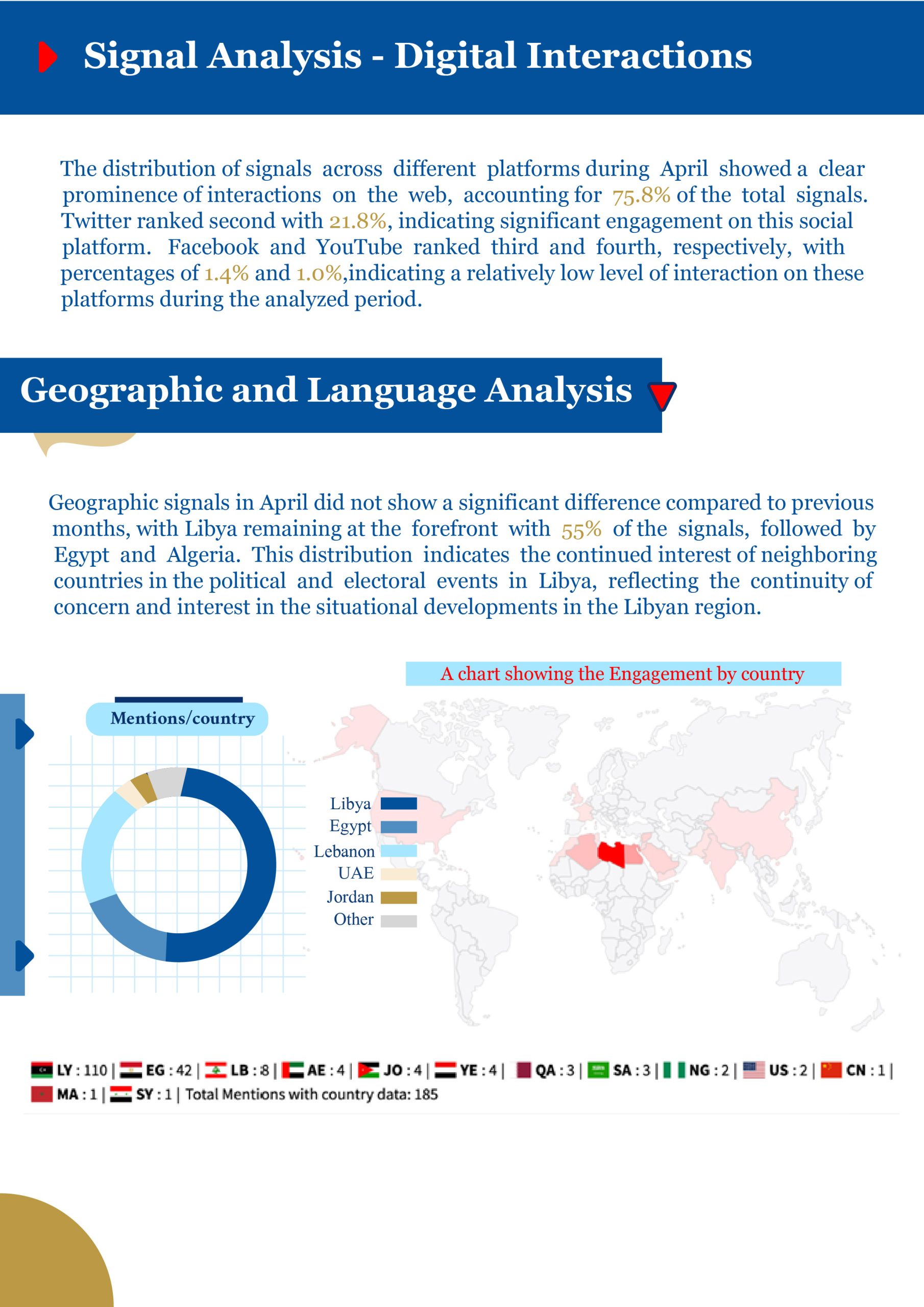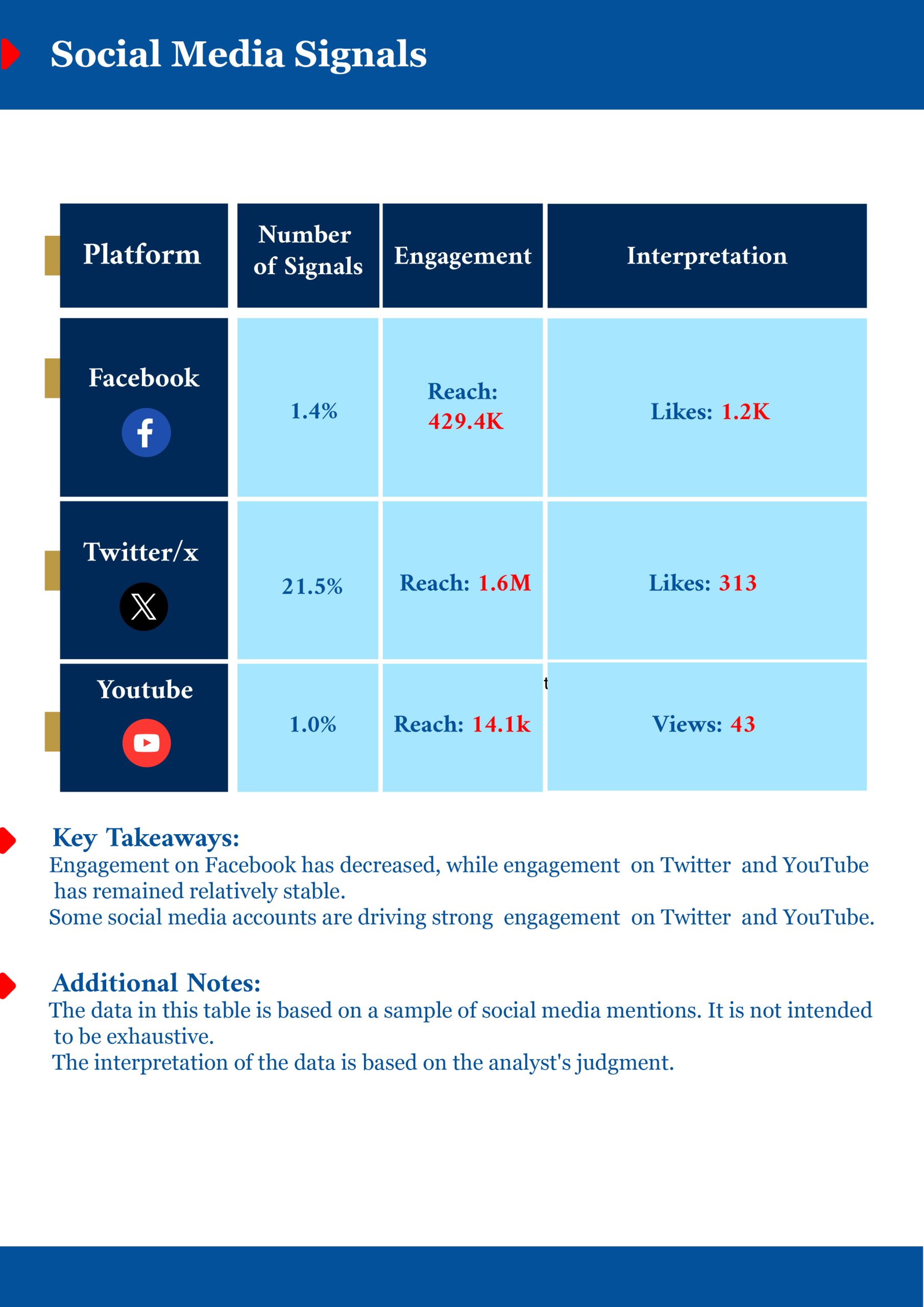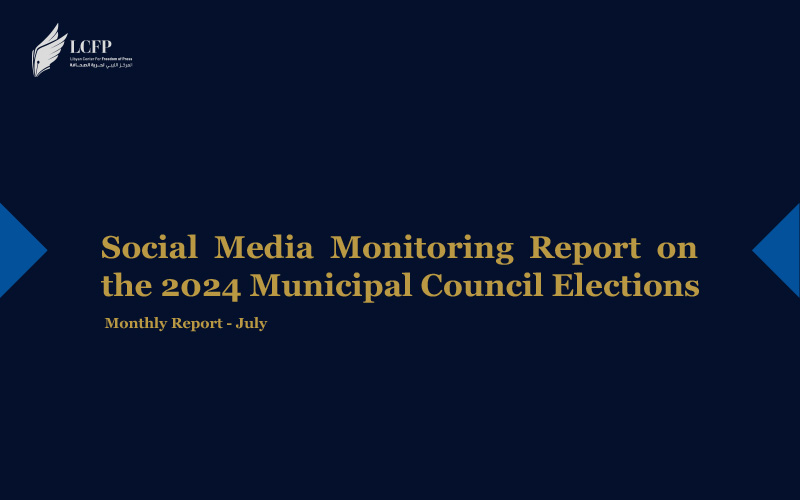
Monitoring social media around municipal council elections (July)
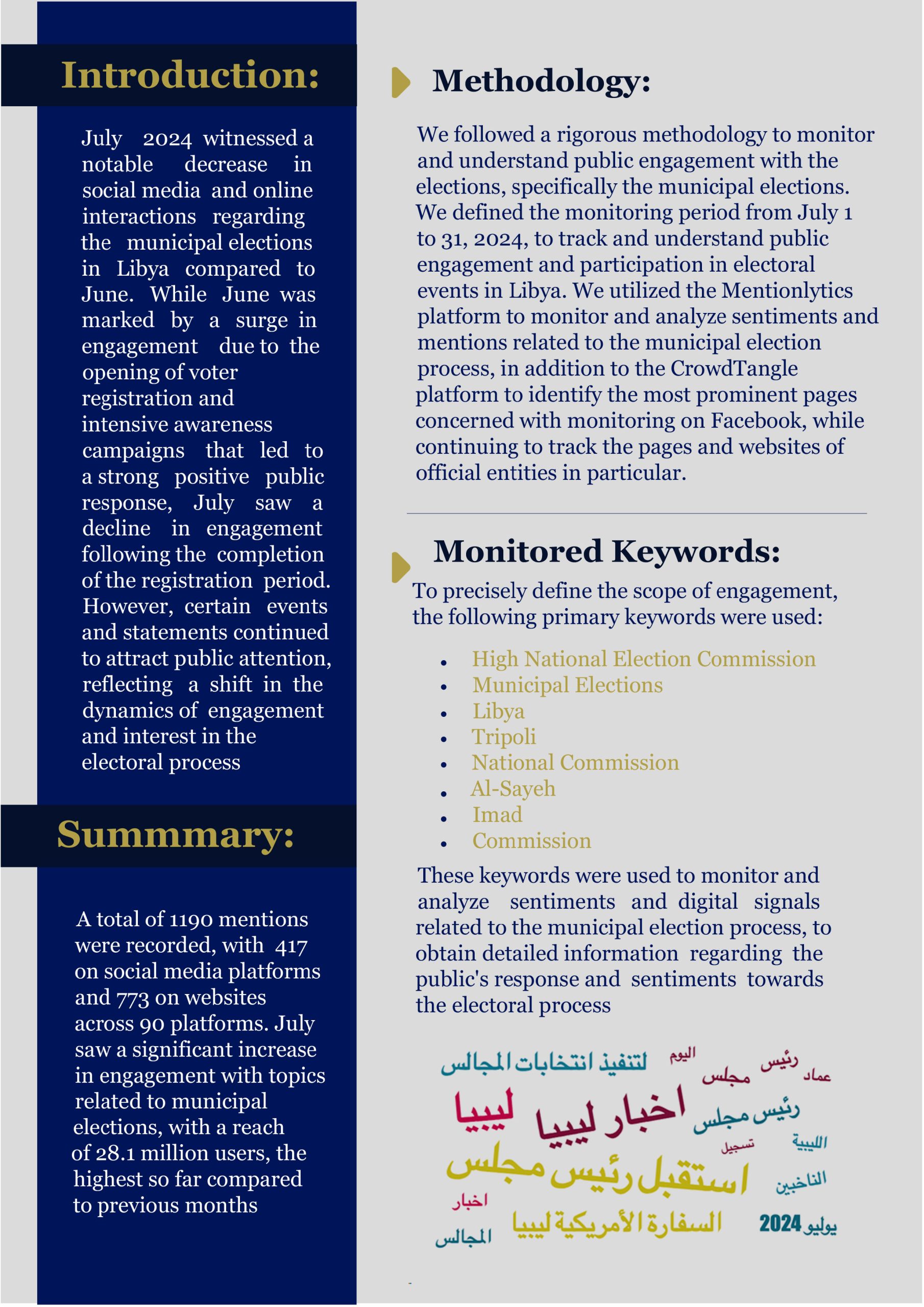
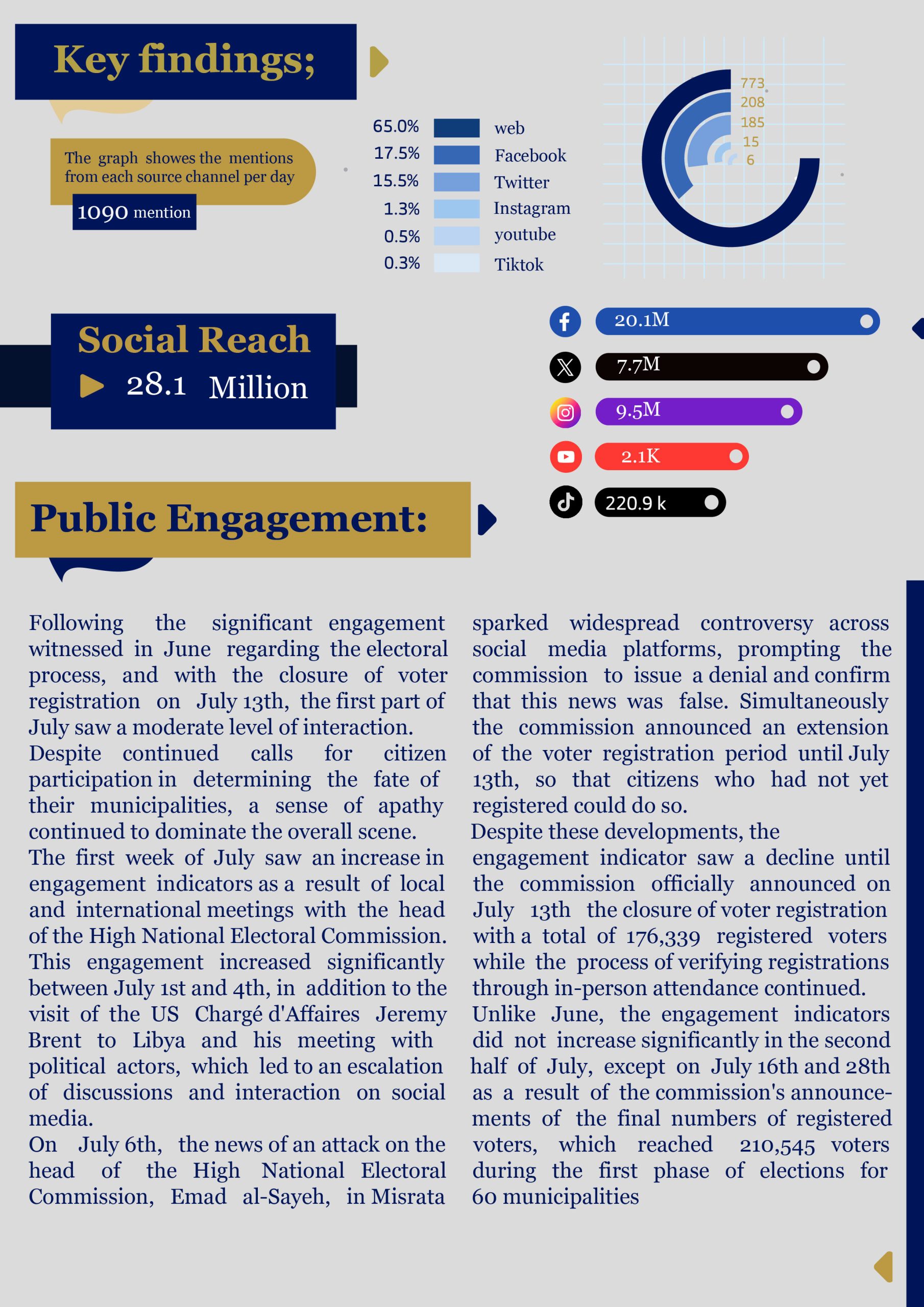
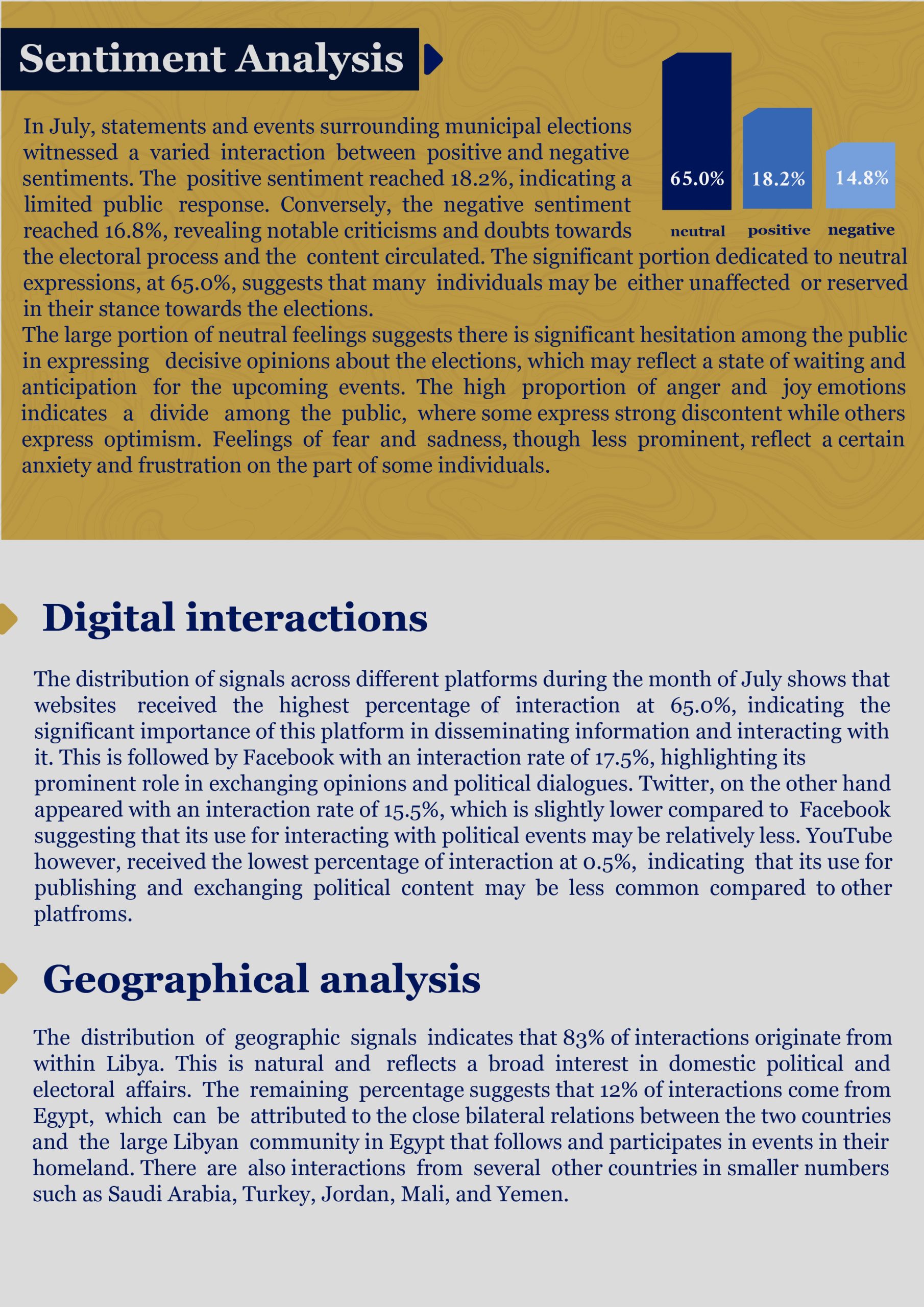
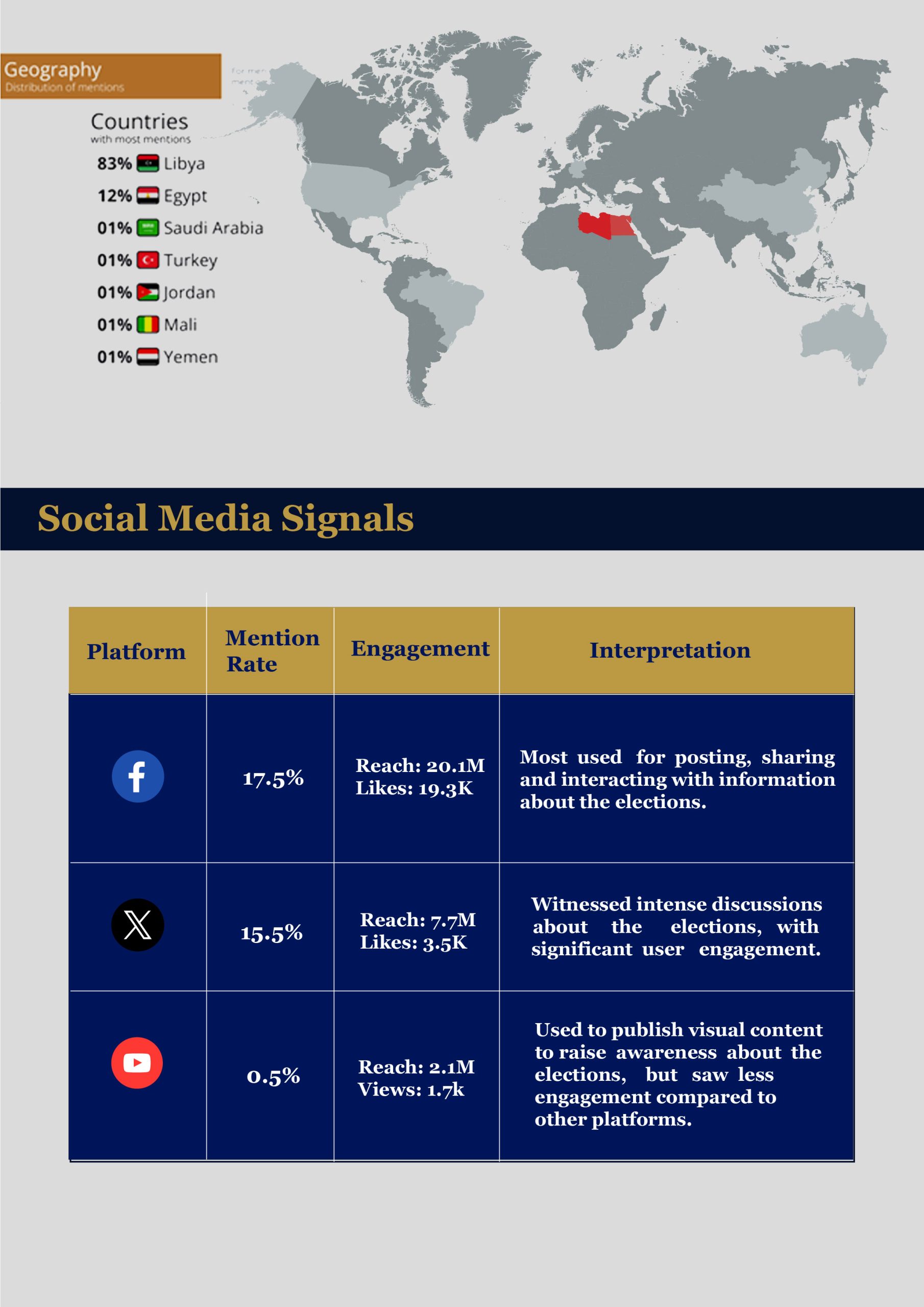
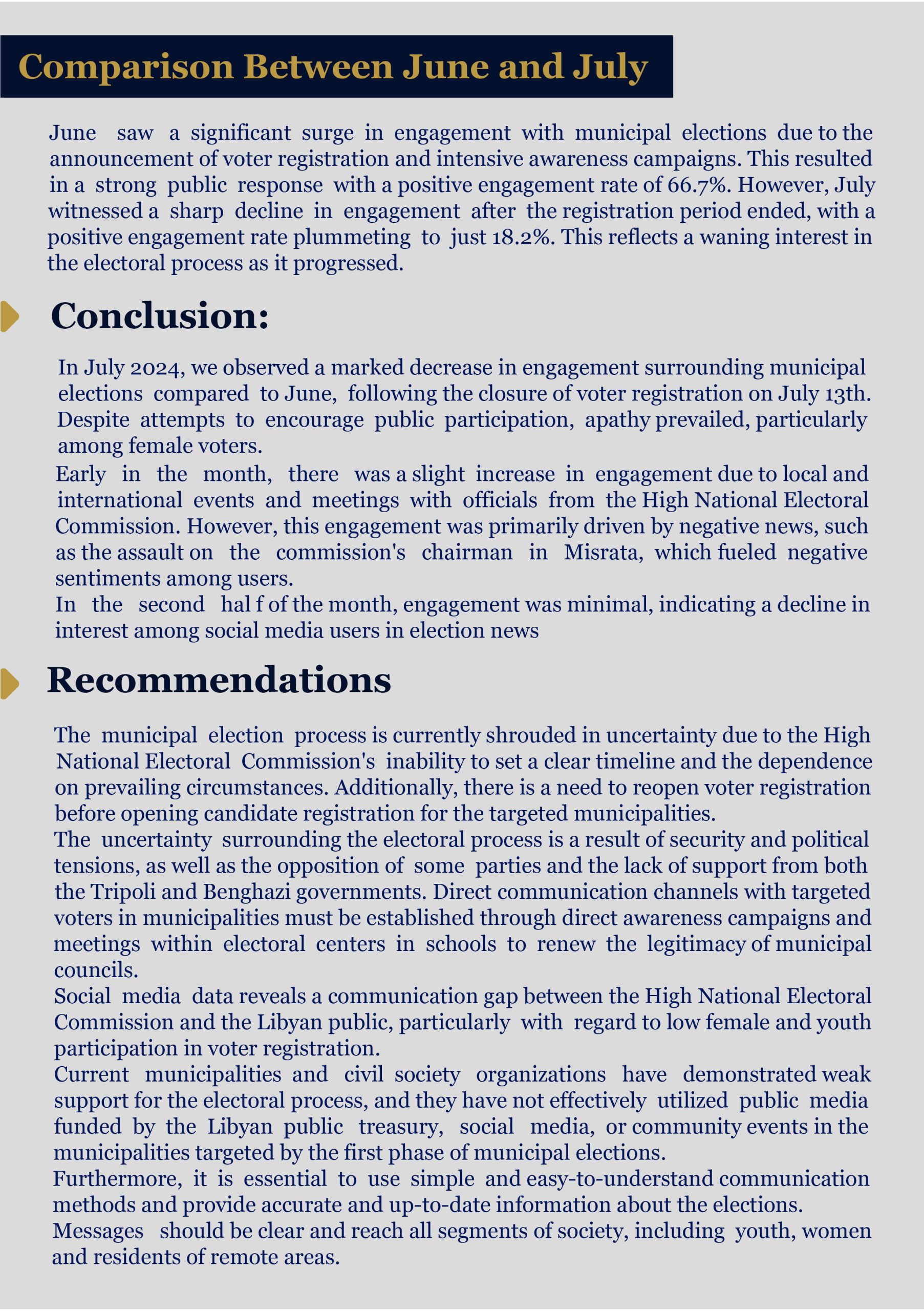
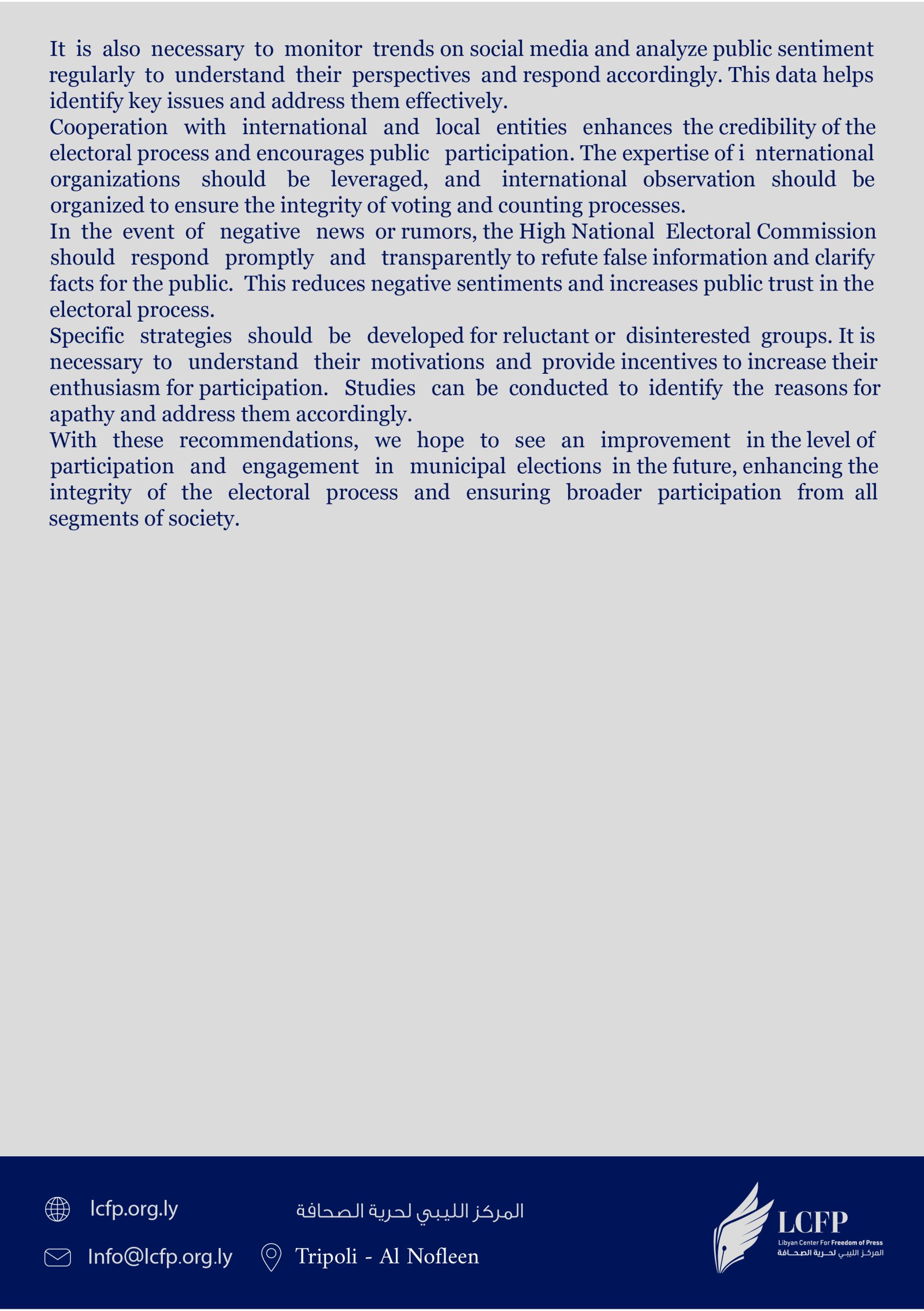







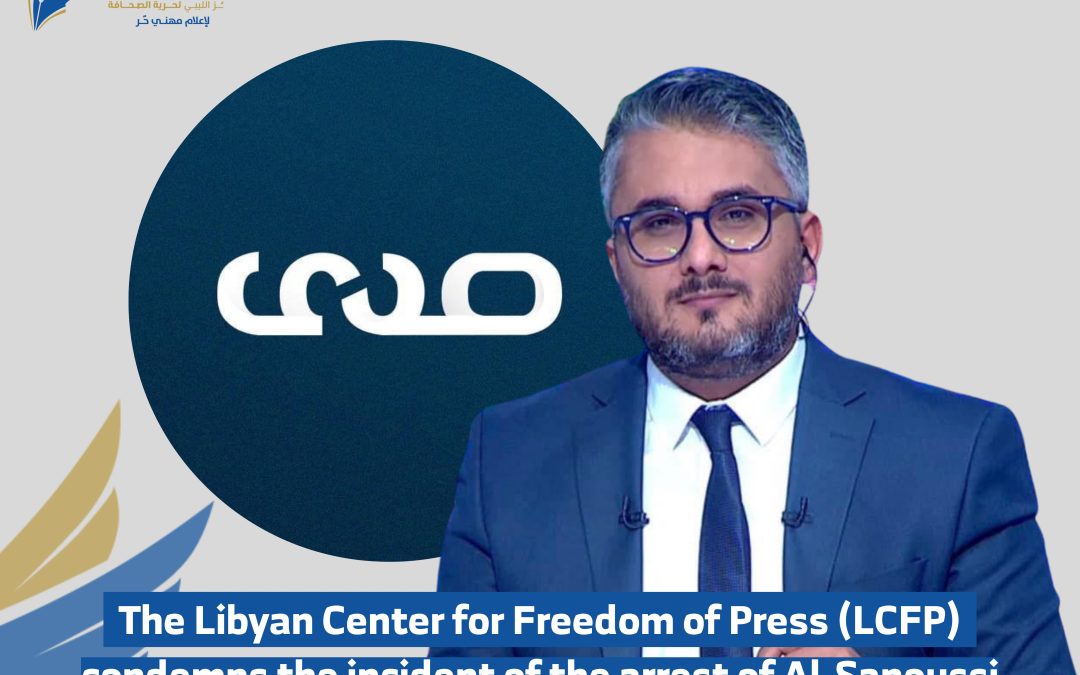
Press Release
For Immediate Release
The Libyan Center for Freedom of Press (LCFP)condemns the incident of the arrest of Al-Sanoussi, and demands the cessation of the pursuit of Sada journalists for publishing documents exposing corruption in the government in Tripoli.
The LCFP expresses its grave concern over the information received regarding the arbitrary arrest that targeted the journalist Ahmed Al-Sanoussi, editor-in-chief of the economic newspaper Sada, in Tripoli on Thursday, July 11, and his detention in one of the headquarters of the Internal Security Apparatus affiliated with the Government of National Unity, according to his relatives.
Tripoli – July 11 / The LCFP team calls on the Office of the Attorney General and the authorities of the Presidential Council and the Prime Minister’s Office of the Government of National Unity to act immediately and urgently to release Al-Sanoussi, and to refrain from intimidating and pursuing the journalists of the economic newspaper Sada merely for publishing documents revealing the scale of corruption in government institutions.
In an unprecedented step, the leadership of the Ministry of Economy in Tripoli threatened the journalists of the Sada economic newspaper website and warned of pursuing them for security reasons, following their publication of documents revealing the scale of corruption, administrative and financial violations in the Ministry of Economy of the Government of National Unity, chief among them the violations committed by the Minister of Economy, Mohamed Al-Hweij. Some of these documents were issued by the Audit Bureau and the Administrative Control Authority.
The team of the Iqtisadiah Echo newspaper was subjected to threats, intimidation, and prevented from carrying out their work or entering the headquarters of the Ministry of Economy in Tripoli. In addition, the editor-in-chief, Inam Azuz, received numerous phone calls from ministry officials questioning her and pressuring her to reveal her journalistic sources and how she obtained the documents that the journalist published, which prove the violations and corruption in the mentioned ministry.
The editor-in-chief, Inam Azuz, received a phone call on Thursday, July 4, from a “female officer” claiming to be from the Internal Security Agency, stating that she has a summons for an investigation at the Internal Security Office regarding what was published in the Iqtisadiah Echo newspaper on the previous Saturday, July 6. This was rejected by the editor-in-chief, Ahmed Al-Sanusi, who informed her that as the editor-in-chief and the legal representative of the newspaper, there is no official summons from the Press Prosecution Office at the Attorney General’s Office.
As a result, the journalist Azuz received 11 phone calls from the same “female officer” pressuring her to comply with the alleged investigation on Saturday, July 6. The harassment and attempts to restrict and threaten the Iqtisadiah Echo newspaper and its editor-in-chief Inam Azuz with legal action continued, as she did not reveal her sources in obtaining the documents that confirm the violations and corruption at the Ministry of Economy.
As published on his verified Facebook page, the editor-in-chief of the newspaper Al-Saada Al-Iqtisadi, Ahmed Al-Senussi (before his arbitrary arrest), shared a video that explains the threats received by his team, at the behest of the Minister of Economy, Muhammad Al-Huwaij, from the Internal Security Agency to arrest Al-Saada journalists in order to pressure them to reveal their journalistic sources. According to Al-Senussi’s claims, the Minister Al-Huwaij later retracted his statements.
LCFP renews its call to the Prime Minister of the Government of National Unity, Abdel Hamid Al-Dabaiba, to fulfill his commitments announced in Circular No. 8 of 2021 regarding the pledge to enhance press and media freedom and the right of access to information. Al-Dabaiba had repeatedly affirmed that he would allow greater openness towards journalists and facilitate their work and movements, which has not been implemented so far, as confirmed by many events and facts.
We demand the necessity of stopping all arbitrary measures and attempts at censorship and threatening journalists who publish documents that reveal the extent of entrenched corruption in Libyan state sectors, as well as attempts to intimidate them through arbitrary arrests and restrictions by the security agencies, which have not ceased their interference in the work of journalists and their attempts to impose control over the publication of documents and information.
